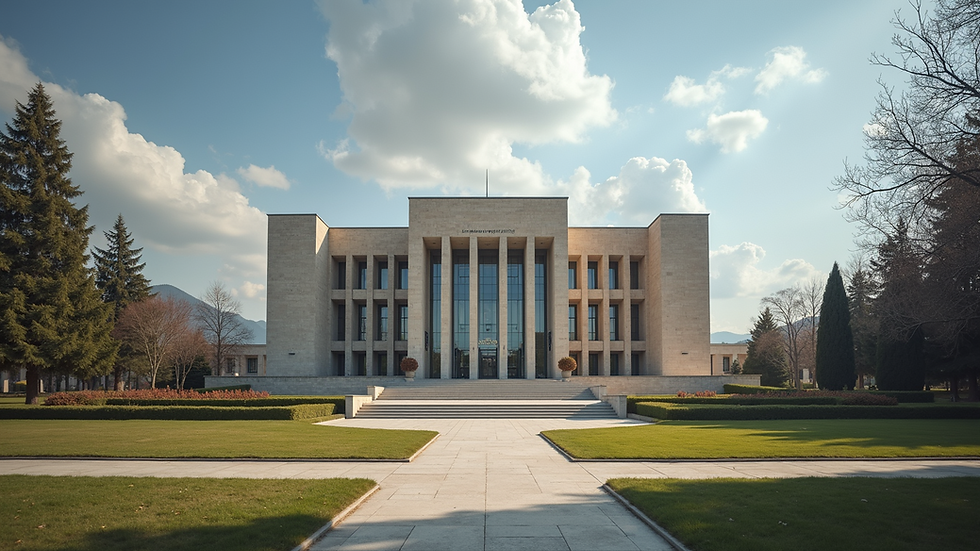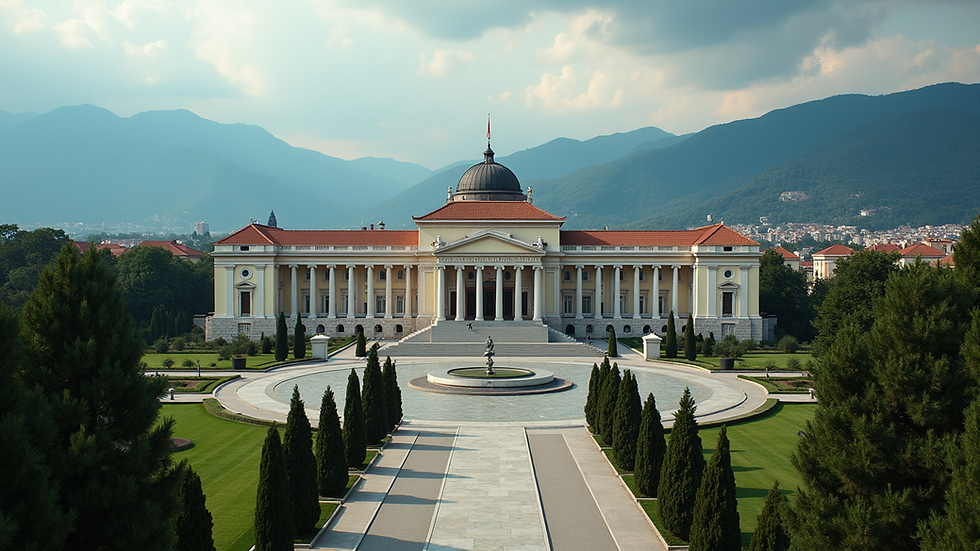Modern Political Issues in Kosovo and Albania
- ab le
- Aug 8
- 4 min read
The political landscape in Kosovo and Albania is complex and evolving. Both countries face numerous challenges that shape their domestic and international policies. Understanding these issues is essential for anyone interested in the region's future. In this post, I will explore the key political challenges in Kosovo and Albania, focusing on governance, regional relations, and social dynamics. I will also discuss some of the modern political movements influencing change today.
Understanding Balkan Political Challenges in Kosovo and Albania
Kosovo and Albania share historical, cultural, and linguistic ties, but their political paths have distinct trajectories. Kosovo declared independence in 2008, a move still contested by some countries. Albania, on the other hand, has been an independent state for much longer but continues to face its own political hurdles.
One of the main challenges in both countries is strengthening democratic institutions. Corruption remains a significant problem, undermining public trust and slowing economic development. For example, in Kosovo, political parties often struggle to maintain transparency, which affects governance and foreign investment. Albania has made progress in judicial reforms, but implementation remains inconsistent.
Another critical issue is regional stability. Kosovo's relationship with Serbia is a constant source of tension. Dialogue facilitated by the European Union aims to normalize relations, but progress is slow and fragile. Albania supports Kosovo's sovereignty but must balance this with its diplomatic relations in the Balkans.
Economic challenges also play a role in political stability. High unemployment rates and limited opportunities for young people fuel dissatisfaction. Both countries are working to attract foreign investment and improve infrastructure, but political uncertainty can deter potential investors.

Kosovo's parliament building, a symbol of its political aspirations and challenges.
Key Balkan Political Challenges Affecting Governance and Society
The political challenges in Kosovo and Albania are multifaceted. They include issues related to governance, ethnic relations, and integration into European structures.
Governance and Rule of Law
Both countries face difficulties in enforcing the rule of law. Weak judicial systems and political interference hinder progress. In Albania, efforts to combat organized crime have been ongoing, but corruption within law enforcement agencies remains a concern. Kosovo's judiciary is also under pressure to improve independence and efficiency.
Ethnic Relations and Minority Rights
Kosovo is home to a majority Albanian population but also has significant Serbian and other minority communities. Ensuring minority rights and peaceful coexistence is essential for long-term stability. Tensions occasionally flare, especially in northern Kosovo, where Serbian communities resist Pristina's authority.
Albania, while more ethnically homogeneous, has its own challenges with minority groups such as Greeks and Roma. Protecting minority rights and promoting inclusion are ongoing priorities.
European Integration
Both Kosovo and Albania aspire to join the European Union. This goal drives many reforms but also exposes political weaknesses. The EU requires progress in areas like judicial reform, anti-corruption measures, and human rights protections. Meeting these criteria is a continuous challenge that shapes domestic politics.

The Albanian parliament building, central to the country's political reforms and EU aspirations.
What are some modern political movements?
Modern political movements in Kosovo and Albania reflect the changing aspirations of their populations. These movements often focus on transparency, anti-corruption, and social justice.
In Kosovo, youth-led movements have gained momentum, demanding greater accountability from political leaders. These groups use social media and public demonstrations to push for reforms. For example, the "Vetëvendosje" movement has become a significant political force advocating for national sovereignty and social equality.
Albania has seen the rise of civil society organizations that promote democratic values and fight corruption. Movements like "Mjaft!" have historically played a role in raising awareness about political and social issues. Newer groups continue this legacy, focusing on environmental concerns and government transparency.
Both countries also experience the influence of nationalist and conservative groups, which sometimes complicate efforts toward regional cooperation and EU integration.

Close-up of protest signs at a political rally, illustrating active civic engagement in the region.
The Role of International Influence and Diplomacy
International actors play a crucial role in shaping the political environment in Kosovo and Albania. The European Union, United States, and regional organizations are deeply involved in supporting reforms and mediating conflicts.
The EU's conditionality approach ties financial aid and membership prospects to political progress. This strategy encourages governments to implement reforms but can also create tensions when expectations are not met.
The United States remains a strong supporter of Kosovo's independence and democratic development. It also works with Albania to promote stability in the Balkans.
Diplomatic efforts focus heavily on resolving the Kosovo-Serbia dispute. While progress has been slow, ongoing dialogue is essential to prevent renewed conflict and foster regional cooperation.
Looking Ahead: Opportunities and Challenges
The future of Kosovo and Albania depends on their ability to address these political challenges effectively. Strengthening democratic institutions, promoting social inclusion, and advancing economic development are key priorities.
For readers interested in staying informed about these issues, I recommend following reliable sources that provide in-depth coverage of Balkan politics. One such resource is Librazhdi Press, which offers timely updates on modern political issues in the region.
Both countries have the potential to become stable, prosperous members of the European community. Achieving this will require sustained effort from political leaders, civil society, and international partners.
By understanding the complexities of Balkan political challenges, we can better appreciate the progress made and the work still ahead.
This overview aims to provide a clear and balanced perspective on the political dynamics in Kosovo and Albania. The path forward is not without obstacles, but with continued engagement and reform, positive change is possible.






